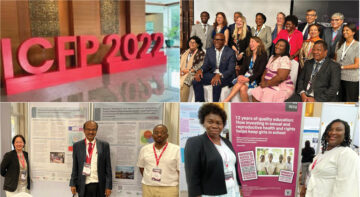News
There is now increasing evidence that population and family planning are linked not only to the health of women, children and families but also to the achievement of international development goals and objectives more broadly “ including the Millennium Development Goals (MDGs).
Indeed, a 2007 report from the United Kingdom Parliament concluded that there was “overwhelming” evidence that the MDGs “are difficult or impossible to achieve with the current levels of population growth in the least developed countries and regions”.
In addition to citing the potential adverse impact of continued dramatic increases in population growth, the report also noted that “over the past 10 years the focus on population growth has been lost”.
Thus, there is an urgent need for drawing renewed attention to the pressing challenge of population growth and the unmet need for family planning.
Accordingly, the editors of The Lancet called a Working Group Meeting on Population, Family Planning and Achievement of the Millennium Development Goals in order to preparing a special theme issue.
Re-positioning population in development efforts is one of AFIDEP’s focuses, and AFIDEP Director Dr. Eliya Zulu contributed to this meeting, which took place from, December 1-3, 2010, in Chapel Hill, North Carolina, USA.
The issue, funded by the Bill and Melinda Gates Foundation, will assess the evidence for the link between population, family planning and achievement of the MDGs.
Related Posts





